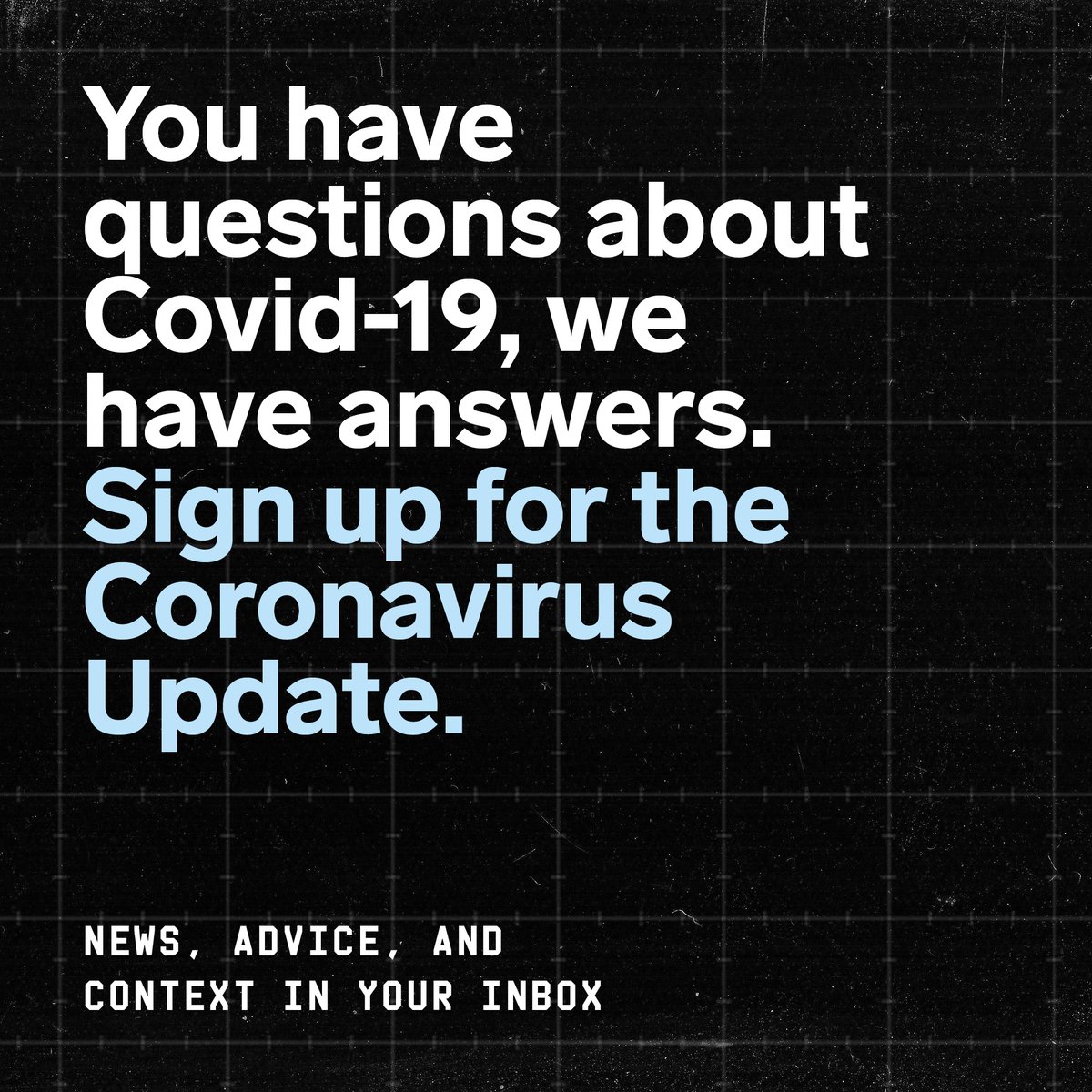Here's what you need to know about the coronavirus 1/ wired.trib.al/q2QaGB3
This is a public health tactic that helps communities slow down the transmission and spread of #Covid19. Research shows that working from home, shutting down schools, and canceling large events can significantly reduce the rate of new infections 2/
A study of 1,000 Wuhan residents says yes. People with diabetes, hypertension, or heart disease had higher rates of infection and 15% of patients with serious disorders had severe complications or died 4/
According to WHO, these include the sniffles, coughing, sore throat, and a low-grade fever. If you’re showing mild symptoms, even if you think it might not be coronavirus, the CDC recommends you isolate at home and contact your health care provider 5/
YES. Washing your hands with soap and water for at least 20 seconds is one of the most effective ways to prevent catching or spreading #Covid19. While the virus on your hands alone can’t infect you, it can enter your system if you touch your face 6/
If you’re experiencing strained breathing, chest pain, or complications from an underlying illness, a hospital visit might be warranted. Call ahead first and let them know you might have #Covid19—they’ll have a protocol for treating you 7/
A pandemic may sound frightening, but the designation isn’t based on how dangerous the disease is. It’s characterized by how geographically widespread it is, and #Covid19 is now in 150+ countries/regions 8/






